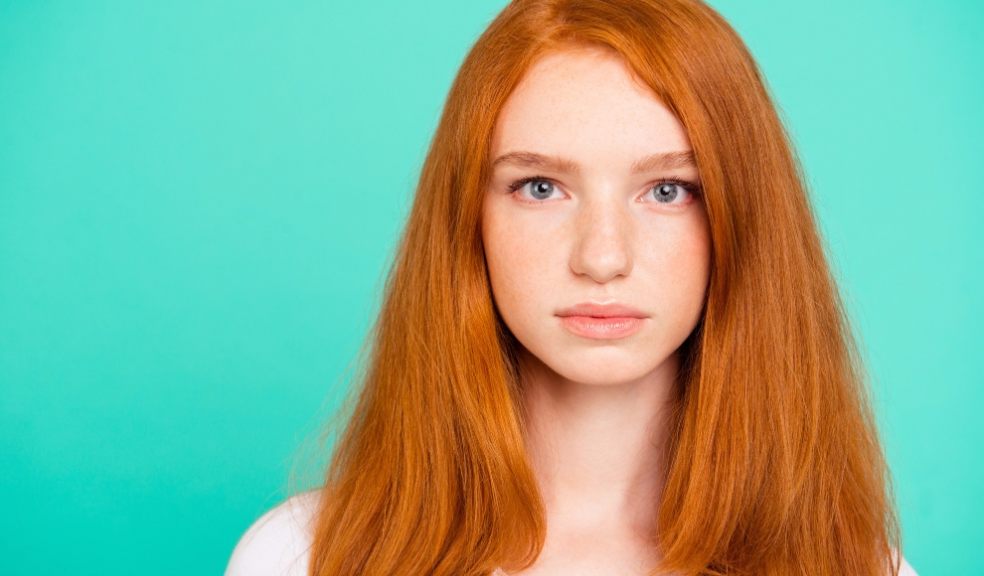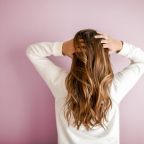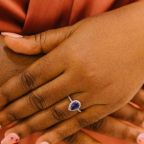
At what age should you let kids start wearing make-up?
Parents have been saying that for decades – but in 2020, when kids are so grown-up they’re leading the climate change movement, running a hectic social life and constantly surrounded by imagery on TV, social media and the internet, wanting to look a certain way can start seeming important at a young age.
I’m a fan of fashion and beauty, but I’m also keen on slobbing around in my comfies and wearing no make-up. Despite my ‘take it some days, leave it others’ attitude though, both my daughters are very interested in looks.
I remember my eldest, Rosie, gasping at a pair of red patent Mary Janes at the tender age of four. And when my youngest, Poppy – now seven – was allowed to wear a little blusher for her Christmas gymnastics stage show, she gazed lovingly at her reflection as she told me how ‘adorable’ she thought she looked.
Rosie is now 10, and desperate to have her own make-up. I’ve been struggling with the requests for a few months now, repeatedly telling her how beautiful she is without it – but apparently, she tells me, ‘everyone’ else has products of their own. One friend felt so sorry for her, she gave her a manky old used concealer stick as a ‘present’, which was kept hidden away in Rosie’s bedroom, until Pops grassed her up and I threw it in the bin…
So, is it time to succumb? Should I let her have a little make-up stash of her own, or tell her to stop asking until she’s a proper teenager?
“From the moment we first glimpse a glamorous woman carefully applying her lipstick, most of us know it’s something we want to try sooner rather than later,” says make-up artist and mum-of-two, Susan Fox.
“But when is the right time to join in the age-old ritual of wearing make-up? The truth is, there is no hard-and-fast rule,” she notes, adding that teens and tweens all develop differently, and what fits for one might be different for another.
“From the age of 11 or 12, most teenagers are already using gloss, concealer and mascara,” says Fox. “And in the fast-paced world we live in, with so much emphasis on beauty and a myriad of YouTube tutorials at their fingertips, it’s hardly surprising teenagers often look way older than they are.
“I know every generation has gone through this, but we’re now faced with kids who have better knowledge, better products, and much better skills than we ever had. However, I do believe make-up before the age of 12 should be reserved for Halloween and dress-up games.
“It is so important to allow our children to enjoy the freedom of childhood.”
Starting out
When and if the time comes, and your children want to start wearing make-up, it’s really important to talk to them. Ask them about it – what do they like about make-up, and why do they want to start wearing it?
If you don’t feel comfortable with them wearing anything too grown-up, you could compromise. Giving them a make-up bag containing tinted lip balm, some face and body moisturiser, and a brow and lash gel might make them incredibly happy, but will barely be noticeable to anyone else.
The Body Shop Brow & Lash Gel, £10
Essence Fruit Kiss Lip Balm, £1.50, Wilko
Don’t let make-up become a mask
As parents, it’s important to guide our kids, while at the same time not taking away their creativity and confidence, says Fox.
“Being a make-up artist, I wanted to let my girls enjoy make-up, and when they insisted on using the black eyeliner on the inside of the eye waterline, I left them to it – only to be asked a year later why I let them out like that! Trial and error, ladies!”
Do instil body confidence in your kids whenever you can. Some might want to wear make-up because they’re not happy with themselves.
“There is no doubt make-up can give confidence when a little extra is needed,” notes Fox, “however, when it starts to become a mask, or hours are being taken to apply it every day, then it might be a good idea to have a chat and make sure there are no other issues going on.
“Get the inner beauty going on, and the outer beauty will be so much more fun.
“Make-up is a lifestyle choice. No one has to wear it. It’s really good for our skin to have make-up-free days too – not only to allow our skin to breathe, but also so we can be happy with the way we look naturally.”
Teen-friendly make-up brands
Fox lists NYX as “a great affordable range, full of loads of colours”, while “Catrice is a budget-friendly option, with super products and fantastic choice”.
She also rates Barry M (especially for foundation) and Urban Decay (“It’s a bit more expensive, but their products really work well and their range is superb – it will satisfy even the most creative”).
You could pop along to a make-up shop or counter as well. Many offer makeover sessions, which can help teach your teens how to apply make-up, while recommending products appropriate for their age, skin type and colourings.
If kids are going to start wearing make-up, they need to ensure they’re ready to properly look after their skin, particularly when they’re at an age when hormones are raging, and wearing make-up can cause spots if it’s not removed correctly.
“The Body Shop Tea Tree range has been around for years but it’s a fantastic product for teenage skin, as well as being very budget-friendly,” says Fox. “They also do moisturisers with an SPF, which is so important to protect the skin.”
For those able to splash the cash, she recommends Elemis’ Super Food skincare range, and says the La Roche-Posay Toleriane Sensitive 3-step Routine is a very good starter kit for teenage skin.
The Body Shop Tea Tree Skin Clearing Facial Wash, £6.50
Elemis Superfood Cica Calm Cleansing Foam, £25
The Body Shop Seaweed Oil-Control Lotion SPF 15, £15
La Roche-Posay Toleriane 3-Step System, £16.85, LookFantastic.com
Susan Fox’s top tips for teenage skin and make-up
1. When cleansing, use clean cotton pads, as using a cloth can harbour bacteria.
2. Always keep all your brushes spotless, especially as it’s so easy to transfer bacteria. Use disposable sponges as opposed to a brush when applying foundation, if you’re suffering with troubled skin.
3. Make sure your face and hands are clean at all times – it’s amazing how much we touch our face over the course of an average day.
4. Use antibacterial wipes to keep your phone clean, as old make-up transfers on to the screen.
5. Pillowcases and towels need to be changed once a week.
6. Always take your make-up off before going to bed. A gentle facial wash or cleanser, used with plenty of lukewarm water, is way kinder to your skin than micellar water or make-up wipes, as these can dry your skin out.
7. Drink lots of water during the day to keep hydrated.
8. Eat a healthy diet, with plenty of fresh veg and fruit, to keep skin looking clear and healthy.
Picture: Getty Images/iStockphoto













